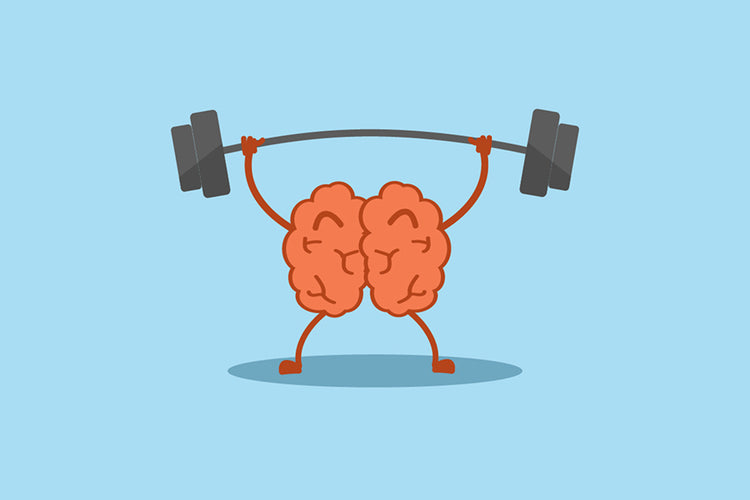Oh, dear readers, gather as I enlighten you with the wondrous world of intermittent fasting! Today, we delve into the miraculous benefits of intermittent fasting and uncover the secrets for achieving maximum results. Are you ready? Of course, you are!
Picture this: instead of obsessing over what to eat, intermittent fasting focuses on when to eat. It's a refreshing change, isn't it? No more endless debates about carbs, proteins, or fats. Nope, all you need to do is time your meals like a pro. Fasting for a few hours each day or week might do wonders for your health!
Let's take a quick detour through the history books. Our ancestors, those mighty hunters, and gatherers, had it all figured out. They roamed the lands, battling wild beasts, and went days without a single bite to eat.
Talk about survival of the fittest! On the other hand, we modern humans can't resist the temptation of a midnight snack or the allure of 24/7 entertainment.
Related Article: Intermittent Fasting Vs. Keto: Which One Is Right for You?
What Is Intermittent Fasting?
Intermittent fasting is a dietary approach that includes alternating between periods of fasting and eating according to a regular schedule. Intermittent fasting is an effective weight management method and may prevent or reverse certain diseases. However, individuals often wonder how to implement this eating pattern and whether it is safe.
Intermittent fasting focuses on the timing of meals rather than the specific foods consumed. It involves restricting food intake to specific time windows. Fasting for a set number of hours each day or consuming only one meal on a few days of the week can offer various health benefits.
Our bodies have evolved to withstand prolonged periods without food, sometimes lasting for several days or even longer. In ancient times, when humans were hunters and gatherers, they adapted to survive and thrive during extended periods without food. Obtaining sustenance through hunting and gathering required considerable time and energy.
Health experts observe that maintaining a healthy weight was more accessible in the United States about 50 years ago. Back then, technology was less pervasive, with no computers, and television programs concluded at 11 p.m., prompting individuals to stop eating and go to bed. Portion sizes were smaller, and people engaged in more physical activity due to increased outdoor work and recreation.
In contrast, with the advent of the internet, television, and round-the-clock entertainment, many adults and children stay awake longer, engaging in activities like watching TV, browsing social media, playing games, and chatting online. This extended wakefulness often involves constant snacking throughout the day and even at night.
The combination of excessive calorie intake and reduced physical activity has contributed to a higher risk of obesity, type 2 diabetes, heart disease, and other health conditions. However, intermittent fasting may help reverse these negative trends and promote better health.
Related Article: Intermittent Fasting: What Is It, and How Does It Work?
Benefits of Intermittent Fasting

Intermittent fasting is a unique eating schedule that involves alternating between periods of eating and fasting. This eating pattern can deliver remarkable advantages for both your body and mind.
Changes in Function of Hormones, Cells, and Genes
When you go without eating for a period of time, your body undergoes various transformations that affect hormone levels, cellular functions, and even gene expression.
For instance, during fasting, insulin levels in the blood significantly decrease. This drop in insulin facilitates the burning of stored body fat. Additionally, fasting may significantly increase the intensity of human growth hormone (HGH) in the bloodstream. Higher levels of HGH can promote fat burning, muscle growth, and other benefits.
DMoose Testosterone Booster Supplement is highly effective for individuals experiencing changed hormone levels, particularly a decline in testosterone production.
By increasing testosterone levels, this supplement can provide a range of benefits, such as enhanced muscle growth, improved strength and endurance, increased energy levels, and a boost in libido.
Furthermore, DMoose Testosterone Booster can help regulate hormone imbalances, improving mood, reducing fatigue, and improving overall well-being.
Fasting also triggers crucial cellular repair processes, allowing the body to eliminate waste materials from cells and promote overall cellular health.
Furthermore, fasting influences gene expression, leading to beneficial changes in various genes and molecules associated with longevity and defense against diseases. These changes in hormone levels, cellular functions, and gene expression contribute to many advantages of intermittent fasting.
Effective for Weight Loss and Visceral Fat
Intermittent fasting is often sought after by individuals aiming to shed some pounds, and it can be effective for weight loss. The primary reason is the reduced meal frequency associated with intermittent fasting.
By eating fewer meals, you naturally consume fewer calories unless you compensate by significantly increasing your intake during the remaining meals. Moreover, intermittent fasting positively impacts hormone function, which aids in weight loss.
DMoose Fat Burner is an incredibly effective supplement for individuals seeking to shed excess fat and achieve their weight loss goals. This potent fat burner supplement is formulated with natural ingredients that synergize to enhance the body's metabolism and promote fat oxidation.
By stimulating thermogenesis, DMoose Fat Burner helps increase the body's calorie-burning capacity, leading to a more efficient and accelerated fat-loss process.
Lower levels of insulin, elevated human growth hormone (HGH) levels, and increased norepinephrine (noradrenaline) levels contribute to the breakdown of body fat and its utilization for energy. Short-term fasting can boost your metabolic rate, leading to the burning of additional calories.
In simple terms, intermittent fasting influences both sides of the calorie equation. It enhances your metabolic rate (increasing calories burned) while reducing the amount of food consumed (reducing calorie intake).
Reduces Risk for Type 2 Diabetes

Intermittent fasting has emerged as a promising approach to reducing the risk of developing type 2 diabetes. This eating pattern involves alternating periods of fasting and eating within a designated window.
By restricting the eating window, intermittent fasting helps to regulate blood sugar levels and improve insulin sensitivity. When we fast, the body uses stored glucose and relies on fat as an energy source.
This process promotes weight loss, reduces excess body fat, and decreases visceral fat accumulation, a significant risk factor for type 2 diabetes. Additionally, intermittent fasting lowers blood pressure, improves lipid profile, and reduces inflammation, all contributing to a decreased risk of developing diabetes.
Reduce Oxidative Stress and Inflammation in the Body
Intermittent fasting can decrease oxidative stress and combat inflammation within the body. Oxidative stress, a process linked to aging and chronic diseases, occurs when unstable molecules called free radicals interact with vital molecules like proteins and DNA, causing damage.
Intermittent fasting can enhance the body's ability to withstand oxidative stress. Furthermore, it can effectively mitigate inflammation, significantly contributing to the development of numerous common diseases.
Beneficial for Heart Health
Intermittent fasting shows potential benefits for heart health, considering that heart disease is the leading cause of death worldwide. Various health markers, "risk factors," are associated with an increased or decreased risk of developing heart disease.
Intermittent fasting can positively impact several risk factors related to heart health. These include blood sugar levels, blood pressure, triglycerides, total cholesterol, LDL (bad) cholesterol, and inflammatory markers.
Induces Carious Cellular Repair Processes
During fasting, our body's cells activate a crucial cellular process known as autophagy, which removes accumulated cellular waste. Autophagy involves the breakdown and disposal of damaged and dysfunctional proteins that accumulate within cells over time.
By promoting increased autophagy, intermittent fasting may offer protection against various diseases, including cancer and neurodegenerative conditions such as Alzheimer's disease. This cellular repair process is vital in maintaining cellular health and functioning.
Helps Prevent Cancer
Intermittent fasting may prevent cancer, a condition characterized by uncontrolled cell growth. Fasting has demonstrated several positive effects on metabolism that could potentially lower the risk of developing cancer.
Animal studies have provided promising evidence, suggesting that intermittent fasting or fasting-mimicking diets may have preventive effects against cancer.
Similar findings have been observed in human studies, although further research is necessary to strengthen these conclusions. Furthermore, some evidence indicates that fasting can alleviate specific side effects of chemotherapy in humans. This suggests that fasting might offer benefits in terms of cancer prevention and the management of its treatment.
Beneficial for Brain

The advantages of intermittent fasting extend beyond the body and positively affect brain health. Intermittent fasting improves various metabolic aspects that play a crucial role in maintaining optimal brain function. It aids in reducing oxidative stress, inflammation, blood sugar levels, and insulin resistance, all of which are essential for brain health.
Fasting also leads to increased levels of a brain hormone called brain-derived neurotrophic factor (BDNF). Low levels of BDNF have been linked to conditions like depression and other brain-related disorders.
Prevents Alzheimer's Disease
Alzheimer's disease stands as the most prevalent neurodegenerative condition worldwide. With no current cure available, preventing its onset is of utmost importance.
Animal studies have also suggested that fasting may offer protective effects against other neurodegenerative diseases, such as Parkinson's disease and Huntington's disease. These findings highlight the potential of intermittent fasting as a preventive measure against Alzheimer's and other related conditions.
Extends Your Lifespan
One of the most intriguing potential applications of intermittent fasting is its ability to extend lifespan. Intermittent fasting, like continuous calorie restriction, can increase lifespan. Fruit flies have also exhibited extended lifespans through intermittent fasting.
Moreover, daily fasting has been shown to improve the overall health of male mice by delaying the onset of conditions commonly associated with aging, such as fatty liver disease and hepatocellular carcinoma.
While it is yet to be determined in humans, intermittent fasting has gained popularity among those interested in anti-aging strategies. Considering its known benefits for metabolism and various health markers, intermittent fasting could contribute to a longer and healthier life.
Related Article: Intermittent Fasting for Bodybuilders: How It Works for Fat Loss and Muscle Growth
How Does Intermittent Fasting Work?
Intermittent fasting operates on the principle of selecting specific periods for eating and fasting, and there are various approaches to implementing it. For example, one method involves restricting eating to an eight-hour window each day while fasting for the remaining hours.
Alternatively, some individuals may consume only one meal daily for two days each week. Numerous intermittent fasting schedules exist to suit different preferences and lifestyles. During fasting, the body depletes its sugar reserves and transitions to burning stored fat. This metabolic shift is referred to as "metabolic switching."
In contrast, the typical eating pattern for many Americans involves consuming meals and snacks throughout the waking hours. Without periods of fasting, the body continuously relies on the calories consumed from each meal rather than tapping into its fat stores.
Intermittent fasting functions by extending the duration during which the body has utilized the calories from the last meal, prompting it to initiate fat-burning processes. Introducing these fasting periods allows the body to access and utilize stored fat as an energy source.
Related Article: Intermittent Fasting for Women Over 50: Is It Safe?
Intermittent Fasting Plans

Before initiating intermittent fasting, it is advisable to consult your doctor for guidance. Once you have received medical approval, the process itself is straightforward.
16/8 Fasting Method
You can opt for a daily approach, which involves restricting your eating to a specific six- to eight-hour period each day. For example, you may follow the 16/8 fasting method, where you eat during an eight-hour window and fast for the remaining 16 hours.
While some individuals find it easy to adhere to this long-term pattern, intermittent fasting indicates that limiting the daily eating window does not necessarily prevent weight gain or lead to significant weight loss.
Reducing the frequency of large meals or opting for smaller, more frequent meals may be associated with minimizing weight gain or even promoting weight loss over time.
5:2 Fasting Approach
Another intermittent fasting plan, known as the 5:2 approach, involves regular eating five days a week and restricting yourself to one 500-600 calorie meal on the other two days. For instance, you might eat normally throughout the week except on Mondays and Thursdays, designated as your one-meal days.
It is important to note that extended periods of fasting, such as 24, 36, 48, or 72 hours, may not necessarily be more beneficial and can pose potential risks. Prolonged fasting could prompt the body to store more fat in response to perceived starvation.
It may take two to four weeks for the body to adapt to intermittent fasting. During this adjustment period, you might experience hunger or mood changes. However, participants who successfully navigate this period often continue with the plan as they notice improvements in their feelings.
Foods to Eat on Intermittent Fasting?
While practicing intermittent fasting, you can consume water and zero-calorie beverages like black coffee and tea during fasting. During the designated eating periods, it is essential to maintain a balanced approach and avoid excessive indulgence.
Filling your eating window with high-calorie junk food, oversized fried items, and excessive treats is unlikely to lead to weight loss or improved health. However, one of the advantages of intermittent fasting is its flexibility in terms of food choices.
You can enjoy various foods while following the eating periods. Sharing nutritious meals with others and savoring the dining experience can contribute to satisfaction and support overall well-being.
The Mediterranean diet is a practical guideline for what to eat, regardless of whether you are fasting intermittently. Opting for leafy greens, healthy fats, lean protein, and complex, unrefined carbohydrates like whole grains is generally a sound approach that promotes good health.
Conclusion
Intermittent fasting has gained significant attention due to its potential health benefits. It offers a unique approach to eating patterns by alternating between periods of fasting and eating.
Intermittent fasting has shown promising results in weight management, indicating its potential to aid in weight loss, reduce visceral fat, and improve metabolic markers. It may also positively impact heart health by improving blood sugar levels, blood pressure, cholesterol levels and reducing inflammation.
Furthermore, intermittent fasting benefits cellular repair processes and brain health and potentially prevents chronic diseases such as cancer, Alzheimer's, and neurodegenerative conditions and influences lifespan. While intermittent fasting offers flexibility in food choices during eating periods, it is crucial to prioritize nutritious and balanced meals to support overall health and well-being.
Reading List
8 Intermittent Fasting Mistakes People Make & How to Avoid Them
Fasted Vs. Fed Workouts: Which is Better for Women?
Article Sources
- Brandhorst, Sebastian, and Valter D. Longo."Fasting and Caloric Restriction in Cancer Prevention and Treatment." Recent Results in Cancer Research. Fortschritte Der Krebsforschung. Progres Dans Les Recherches Sur Le Cancer, vol. 207, 2016, pp. 241-66. PubMed Central, https://doi.org/10.1007/978-3-319-42118-6_12.
- de Groot, Stefanie, et al."Effects of Short-Term Fasting on Cancer Treatment." Journal of Experimental & Clinical Cancer Research, vol. 38, no. 1, May 2019, p. 209. BioMed Central, https://doi.org/10.1186/s13046-019-1189-9
- Bredesen, Dale E."Reversal of Cognitive Decline: A Novel Therapeutic Program." Aging, vol. 6, no. 9, Sept. 2014, pp. 707-17. www.aging-us.com, https://doi.org/10.18632/aging.100690.











